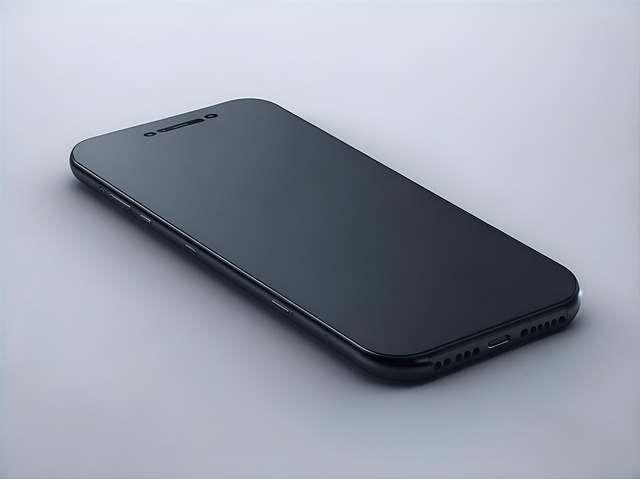Healthcare robocalls in Aberdeen, South Dakota, are a rising concern due to technology and relaxed regulations. These automated calls often violate HIPAA by collecting personal health data without consent and can cause significant distress. Unwanted call lawyers in SD are increasingly handling cases related to these calls, protecting privacy and ensuring HIPAA compliance. Navigating healthcare laws is complex; while HIPAA doesn't explicitly address marketing calls, state laws may apply. Specialized Unwanted Call Lawyers South Dakota or Attorneys SD guide patients and practices on legal protections against intrusive robocalls. Advanced call blocking technology, awareness training, patient opt-outs, and reporting channels are key strategies. Successful lawsuits set precedents; hiring an expert Unwanted Call Law Firm SD is crucial for navigating these issues and protecting sensitive healthcare data.
“In today’s digital age, the healthcare sector faces a growing challenge from robocalls, posing significant risks to patient privacy and provider reputation. This article delves into the rise of automated calls in Aberdeen, South Dakota, focusing on the legal implications under HIPAA (Health Insurance Portability and Accountability Act). We explore strategies for medical professionals to combat these unwanted intrusions, including successful case studies of lawsuits against robocallers. For those seeking guidance, this resource offers insights from top unwanted call lawyers in South Dakota.”
Understanding Robocalls in Healthcare: A Growing Concern in Aberdeen, South Dakota
In Aberdeen, South Dakota, like across the nation, healthcare robocalls have become a growing concern. These automated phone calls, often promoting medical services or selling insurance plans, are increasingly common due to advancements in technology and relaxed regulations. While they might seem harmless, unwanted calls can cause significant distress for individuals and organizations alike, particularly within the healthcare sector where privacy and consent are paramount.
The Health Insurance Portability and Accountability Act (HIPAA) sets strict guidelines on how patient information can be used and disclosed, with severe penalties for non-compliance. As robocallers often collect and use personal health data without explicit consent, they pose a significant risk of HIPAA violations. Unwanted call lawyers in South Dakota are seeing an uptick in cases involving healthcare robocalls, as individuals and practices seek legal recourse to protect their privacy and enforce HIPAA regulations. Unwanted call attorneys and law firms in SD are crucial resources for navigating these complex issues and ensuring compliance with the law.
The Legal Perspective: Navigating HIPAA and Unwanted Call Laws
In Aberdeen or anywhere in South Dakota, navigating healthcare privacy laws like HIPAA can be complex, especially when dealing with unwanted robocalls. The Health Insurance Portability and Accountability Act (HIPAA) establishes rules to protect sensitive patient information, but it also doesn’t explicitly address robocalls. However, state laws on unsolicited telephone marketing—often targeted by robocallers—can come into play. An unwanted call lawyer South Dakota or an unwanted call attorney SD can provide guidance on these legal intersections.
If a healthcare provider or its business associates make or receive automated calls for marketing purposes without proper authorization, they could be in violation of both HIPAA and state unwanted call laws South Dakota. For patients, this means taking proactive steps to protect their privacy and considering hiring an unwanted call law firm SD specializing in such cases. Such legal experts can help establish guidelines for legitimate communication while shielding individuals from intrusive robocalls.
Who's at Risk? Identifying Potential Targets for Legal Action
In Aberdeen, like in many places across the country, the healthcare sector is increasingly targeted by unwanted robocalls. These automated phone calls, often promoting medical services or products, can be a nuisance but also pose significant risks to patients and healthcare providers alike. Individuals who may be at risk include patients with personal health information on record, healthcare professionals, and even those who have simply called or visited a healthcare facility in the past.
Potential targets for legal action under HIPAA (Health Insurance Portability and Accountability Act) include call centers that fail to obtain proper authorization before calling individuals about health services, as well as organizations that disclose protected health information during these robocalls. If you’ve received an unwanted call related to healthcare in South Dakota, consulting with a qualified unwanted call lawyer South Dakota or unwanted call attorney SD is advisable. Reputable unwanted call law firms SD can help assess potential legal remedies available under state and federal laws, including HIPAA regulations, to protect your rights and privacy.
Strategies to Combat Robocalls in the Medical Sector: A Comprehensive Approach
The healthcare sector is increasingly becoming a target for robocalls, posing significant risks to patient privacy and security. To combat this issue, a comprehensive approach involving multiple strategies is essential. Firstly, medical institutions should implement robust call screening and blocking systems that can identify and filter out automated calls effectively. This technology can be enhanced through artificial intelligence, allowing for real-time detection of robocalls.
Additionally, raising awareness among staff and patients about the dangers of unwanted calls is vital. Training programs can educate individuals on how to recognize suspicious calls and report them promptly. Encouraging patients to opt-out of automated call services and providing clear communication channels for reporting will further contribute to a safer medical environment. Engaging the help of an experienced unwanted call lawyer South Dakota or unwanted call attorney SD can also be beneficial, as they can offer guidance on legal remedies and assist in drafting policies that adhere to HIPAA regulations, ensuring that effective measures are taken to protect sensitive healthcare data from robocalls.
Case Studies: Successful Lawsuits Against Robocallers in SD Healthcare
In South Dakota, several notable case studies highlight successful lawsuits against robocallers in the healthcare sector. Individuals and organizations have taken legal action against companies making unwanted calls, with favorable outcomes. These cases not only serve as a deterrent but also establish precedents for others affected by intrusive robocalls. For instance, a class-action lawsuit was filed against a major health insurance company for excessive and unsolicited phone marketing, resulting in a substantial settlement. Another high-profile case involved an unwanted call lawyer in South Dakota who successfully represented patients who received spam calls from healthcare providers, leading to a significant fine for the violators.
These lawsuits underscore the importance of understanding and adhering to HIPAA regulations regarding patient privacy. Unwanted call attorneys in South Dakota emphasize that businesses must secure proper consent before contacting individuals about healthcare matters. Those who ignore these guidelines risk facing legal repercussions, as evidenced by recent victories in the courts. This trend indicates a growing awareness and determination to protect patients from intrusive and unwelcome communication.






